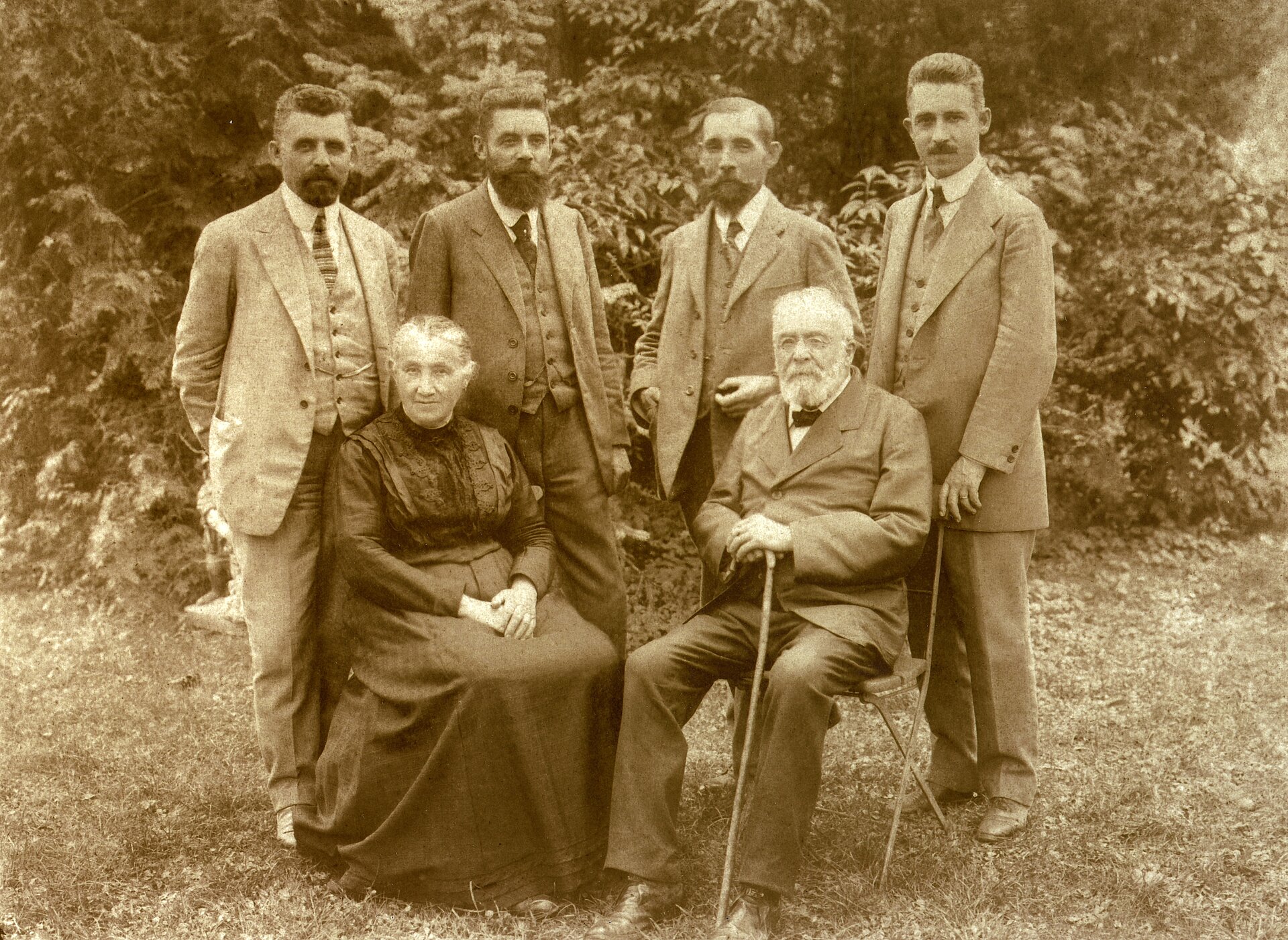

Milestones in our success story
The young Carl Albert and his wife Emilie Greiner open a general store. Among other things, they sell home-made soda water, which they seal with hand-made cork stoppers.
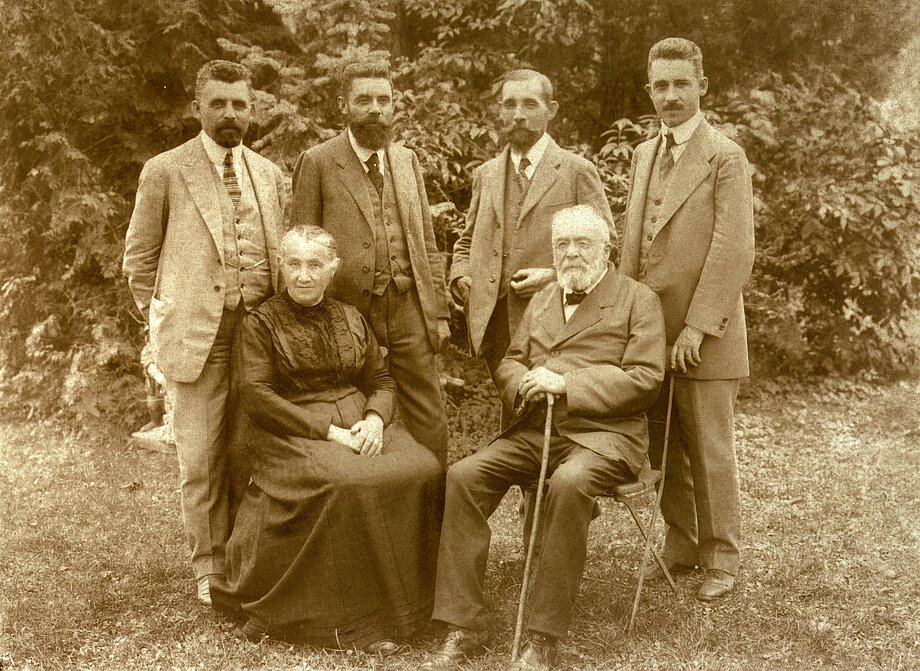
Carl Albert Greiner is granted a patent for his invention of a quadruple cork cutting machine, which replaces the manual cutting of corks. This was the prelude to the focus on the manufacture and sale of cork stoppers that soon followed.
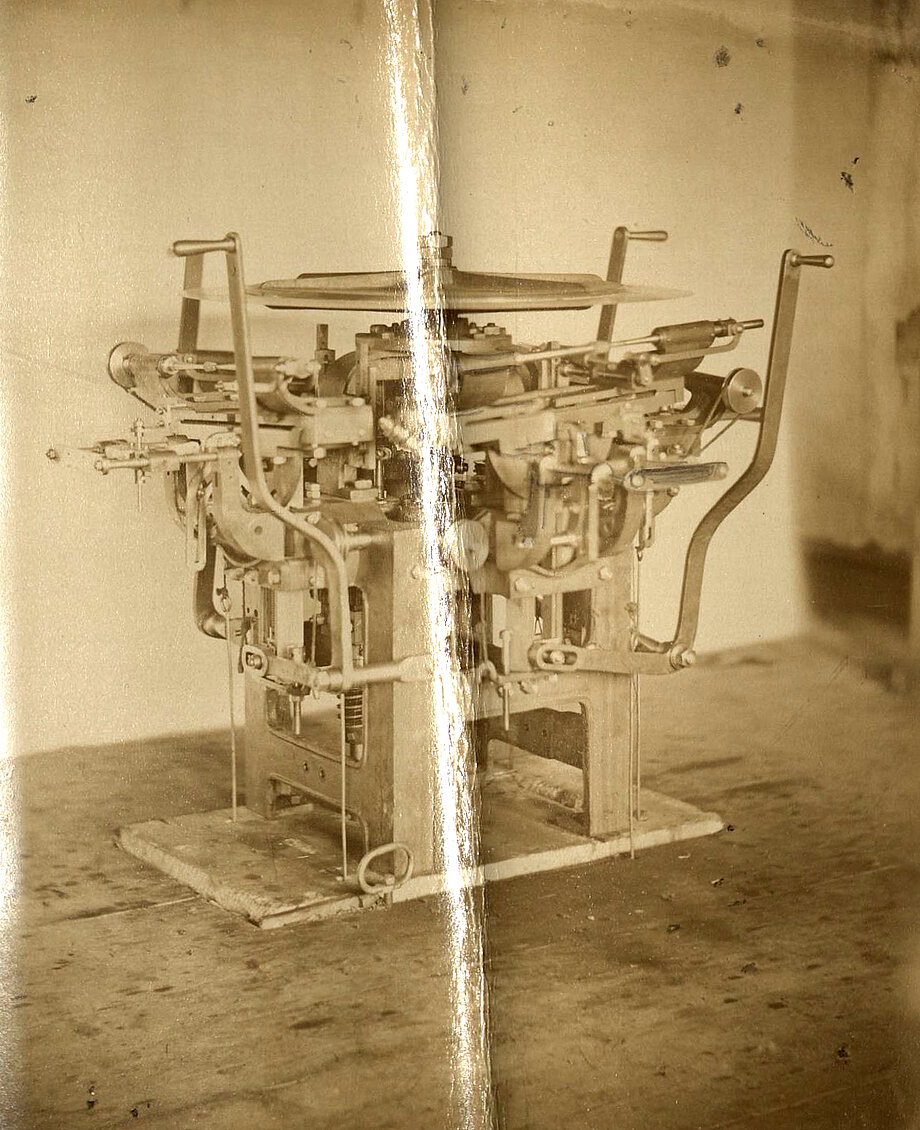
As cork production develops into mass production, the volume of rejects increases. To put the leftovers to good use, the company founder produces firelighters from the crushed cork scraps. The idea of recycling at Greiner was born.
The second generation joins the family business and puts in place the foundation for the current company headquarters with the establishment of a cork stopper factory in Kremsmünster. The decision for the location was based on the company’s own hydropower plant at the site.
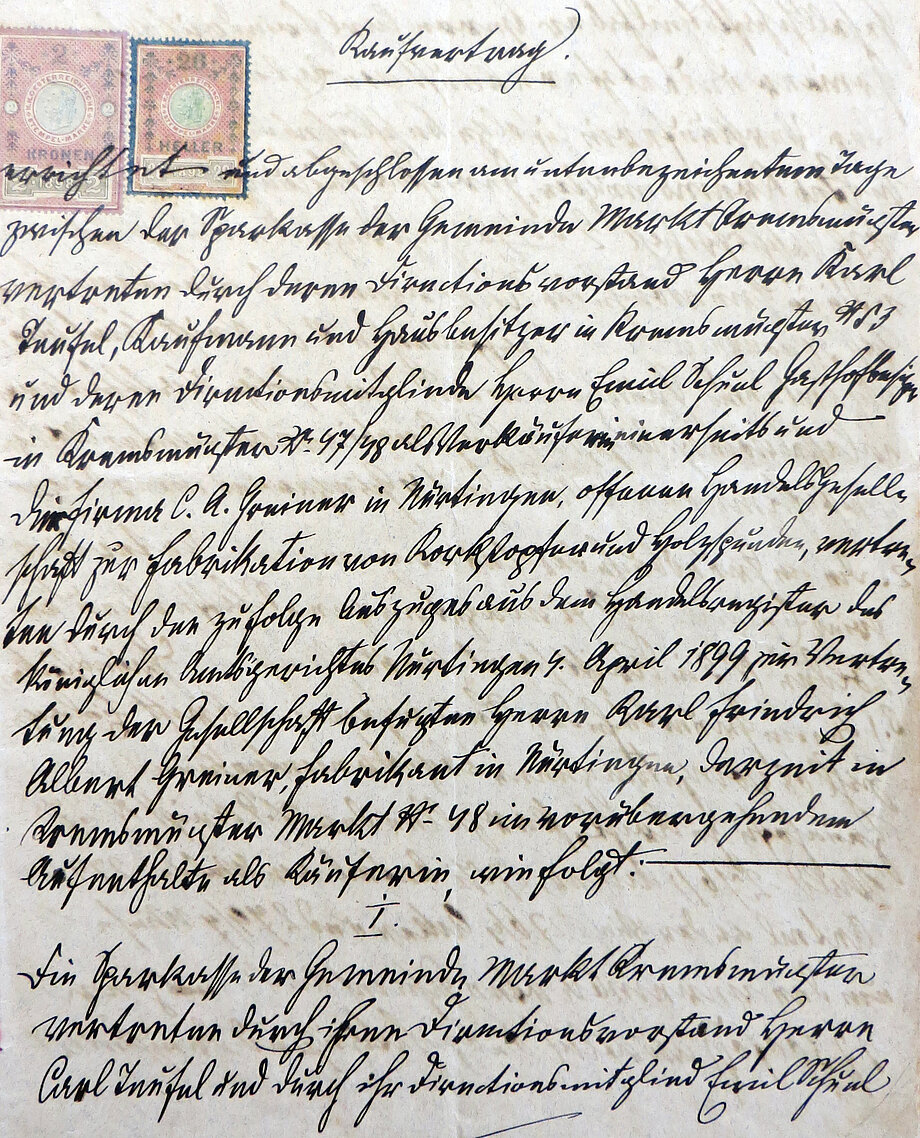
Export connections all over the world – which came about through sales trips by the founders’ four sons to Australia, Asia and America – gain international recognition. After Portugal, Spain and France, the first branch outside Europe is established in Chile this year.
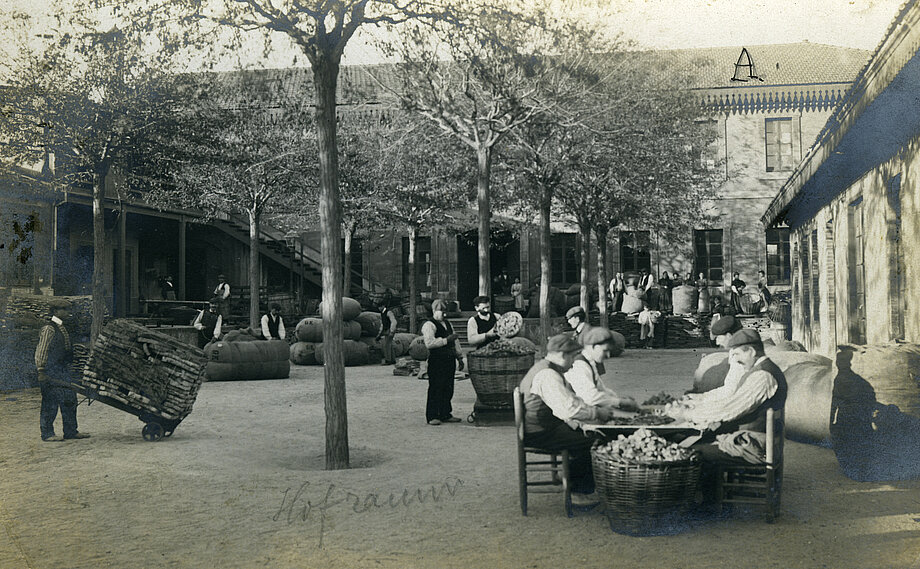
The Greiner family installs the first foaming machine and commissions the first injection molding machine. After an initial start-up phase, the entry into these production technologies open up completely new prospects and business areas for the company.
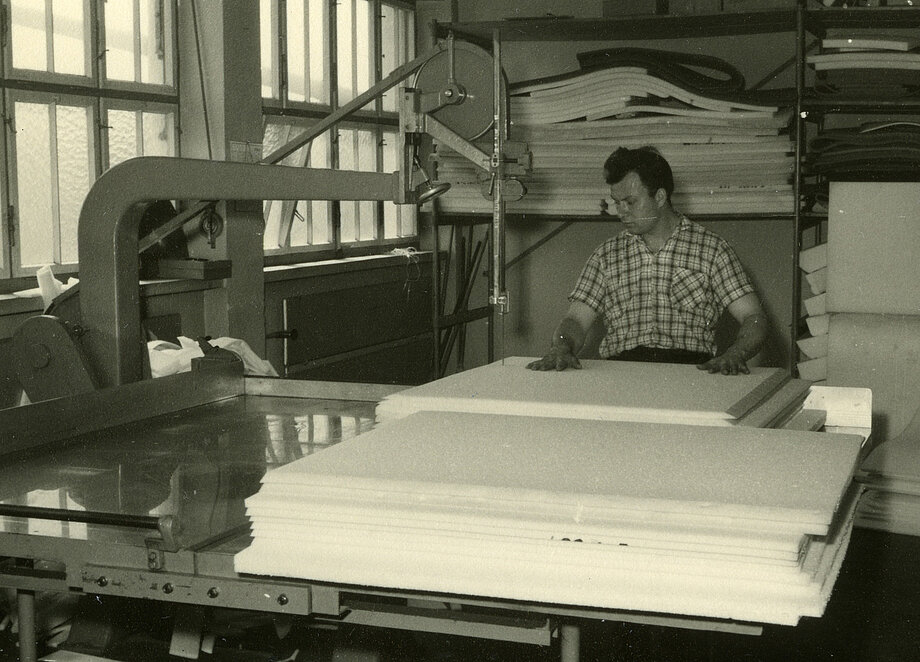
At the suggestion of a customer, Greiner produces the first plastic cups for the food industry using injection molding – a revolution in the packaging market. This is the birth of Greiner Packaging.
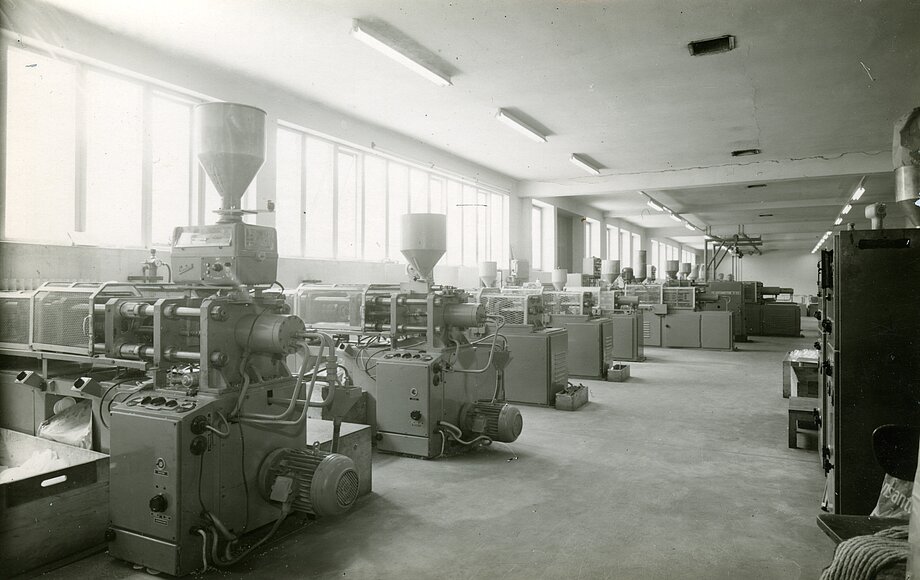
The Greiner Bio-One division celebrates its birth with the production of the first Petri dishes. Soon after, other laboratory items such as test tubes and vials are manufactured using injection molding.
Greiner acquires the profile extrusion company Austroplast and enters a completely new business field, which later leads to the founding of the Extrusion division.
The two operating companies in Germany and Austria are united under the new umbrella of Greiner Holding AG, based in Kremsmünster. In the same year, Greiner is one of the first companies to take advantage of the opening up of the countries in transition and to enter new markets by acquiring a plant in Hungary.
In order to drive forward the expansion into Eastern Europe in the foam sector, the foam operations are brought into a joint venture with the Belgian group Recticel and operate under the new name Eurofoam.
Greiner restructures all business units into independent individual companies. This was the birth of the operating divisions that exist today. Based on its core competencies of plastics and foam, the Group now covers a broad and diversified product portfolio.
Greiner Packaging acquires the Swiss company Sandherr with its K3 packaging expertise, which includes the combination of plastic and cardboard.
Because genuine innovations and groundbreaking changes cannot be created within the existing corporate structures, Greiner founds its own company for innovation management and early-stage technology exploration, Greiner Technology & Innovation (now Greiner Innoventures). It provides start-up support, monitors trends and identifies and evaluates futuristic technologies.
Following a change in the Executive Board, the family business with Axel Kühner and Hannes Moser is under external management for the first time in its history.
Greiner Packaging expands into Turkey and acquires a majority stake in Greiner Packaging Teknik Plastik in Istanbul. The company is also looking to expand into the Asian region.
Under the motto “Plastics for Life,” Greiner is committed to a sustainable future and is one of the first industrial companies in Austria to anchor socially and environmentally responsible action within the company under its eponymous sustainability strategy. The result is a Group-wide sustainability management system.
Greiner celebrates its 150th anniversary. The holding company Greiner Holding AG is renamed Greiner AG.
After a two-year expansion of the existing headquarters, the Greiner Campus in Kremsmünster opens its doors to a sophisticated office and training center.
Greiner outlines a specific plan for a better future through the Blue Plan. The overarching sustainability strategy sets out ambitious goals for the entire Group in the three pillars of climate, circular economy and people, all of which are to be achieved by 2030.
Following the complete acquisition of the Eurofoam joint venture in 2020, the renamed Greiner Foam International GmbH unites all foam activities of Greiner as the integrated foam group NEVEON. In the same year, the extrusion division (Greiner Extrusion) is sold to the Dutch-German investment company Nimbus.
Greiner purchases an r-PET recycling plant in Serbia to make recycling an integral part of its business model. In so doing, Greiner takes an important step toward a sustainable circular economy.
Greiner creates a third Executive Board division for the first time in the company’s history. Manfred Stanek, most recently CEO of Greiner Packaging International, becomes Chief Operating Officer of Greiner AG to strengthen the existing Executive Board duo Axel Kühner and Hannes Moser with a focus on the strategic development of the divisions. At the end of 2023, Axel Kühner Greiner leaves after 15 years.


